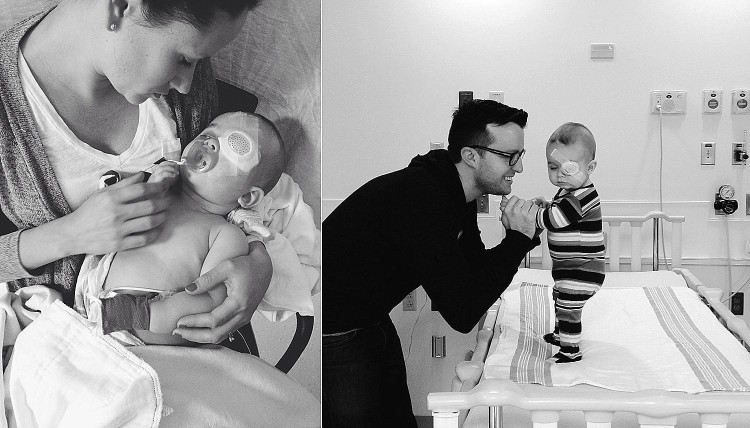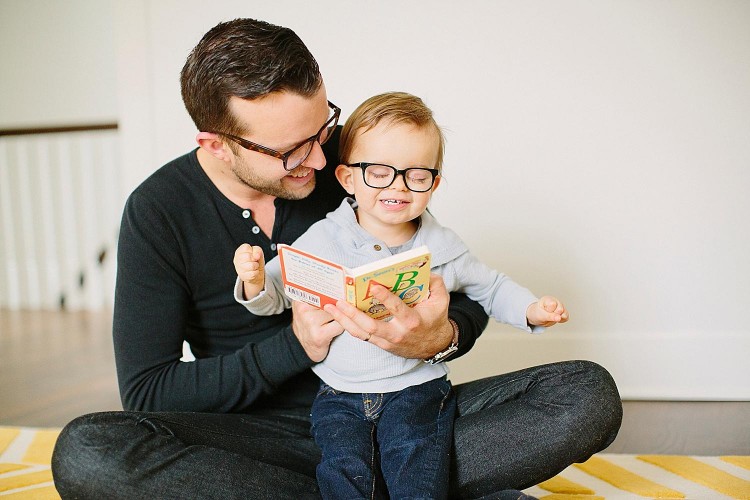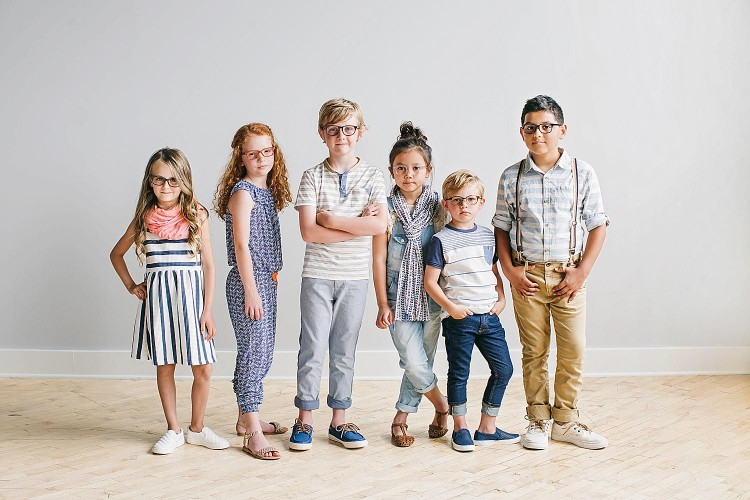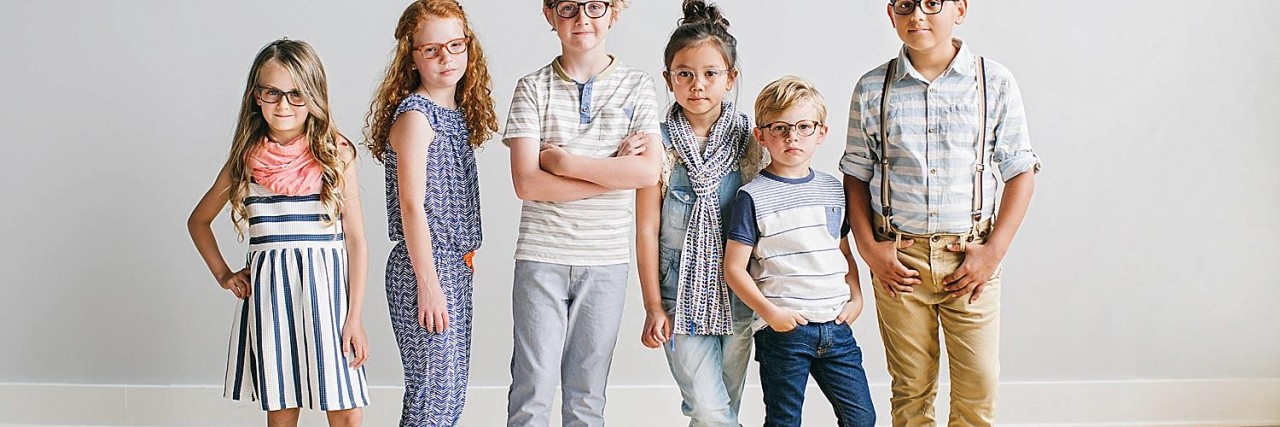
We can remember vividly the joy we felt when we became parents for the first time. It is true when people say that you never knew you could love so deeply. We can remember even more vividly the doctors telling us that our son may be blind … and the overwhelming sadness that followed for my wife and I.
Our sweet boy was diagnosed with bilateral Peter’s anomaly and glaucoma, an eye condition in which his corneas were opacified and the pressure elevated. The physical challenges of our son’s condition have been incredibly hard. He’s undergone 21 surgeries before his 3rd birthday, all with the hopes of providing him the most potential for sight. There is definitely truth to the adage “whatever doesn’t kill you makes you stronger.” That is the unexpected upside to adversity.
Every new parent has dreams of what their child is going to be like, or what activities they are going to do with them — like throwing a ball back and forth, teaching them to ride their first bike, or teaching them to drive a car.
And though we’ve had to release these dreams, they have been replaced by a reality that is actually more beautiful.

I believe all of us who have children, love them regardless of who they are. There is something divine in loving a child without motive or expectation. It allows you to find beauty in the existence, rather than the achievements, of your child.
As Andrew Solomon stated in his book, “Far From The Tree,”
“There is a compelling purity in parental engagement not with what might or should or will be, but with, simply, what is.”
When Jonas was born we were thrust into a new space of visual impairment in which we recognized quickly the majority of eyeglass solutions were incredibly cost prohibitive and focused purely on function, often at the expense of a child being embarrassed to wear glasses. If our son was going to have to wear glasses at a young age, we were determined they were going to be a fashion statement and he was going to feel like a little “stud muffin” in them.
So, like you do shortly after having your first child, you start a children’s eyeglass company.
We launched Jonas Paul Eyewear with a mission of help children feel beautiful in their glasses & provide sight to children in need with every purchase.
Rob Bell articulates how challenges often inspire creativity when he wrote the following in his book “Drops Like Stars,”
“We plot. We plan. We assume things are going to go a certain way. And when they don’t, we find ourselves in a new place — a place we haven’t been before, a place we never would have imagined on our own. It is the difficult and the unexpected, and maybe even the tragic, that opens us up and frees us to see things in new ways. Many of the most significant moments in our lives come not because it all went right but because it all fell apart.”
I can only speak from my experience, but when I was in the space of comfort I found myself becoming emotionally numb to the needs and struggles of individuals around me. I found myself searching for a greater purpose, and though I would have never imagined it, or wished it upon anyone, I received a clear answer in the form of intense pain and challenges. And my life was disrupted.
Often times, a natural response towards disability is to withdraw, and I do not fault anyone for taking this approach, as I understand the challenges of being in public with a child that isn’t viewed as “normal” — the ignorant questions, the stares and double takes, the inability for other parents to relate.
But for us, a more natural response was to push out our struggles and use the energy to create. I attribute this response to our fine art education and background paired with the business ventures we had started. It’s as if we were being molded to be able to respond responsibly to an incredibly difficult situation and push it out to make an impact.
Though I can’t speak to what life is like as a blind woman, I can relate to the truth behind Hellen Keller’s quote, “The only thing worse than being blind is having sight but no vision.”
I can say with confidence our beautiful son changed the direction of our lives and gave us vision.
I’m not sure if any of you wore glasses as I did as a child, but I remember the whole process being embarrassing. From having a doctor tell you that you need to wear glasses, to selecting a pair from the small, cartoon-laden collection for children, to walking into school the first day with an object on your face that was impossible to hide.

And still today there are millions of children in America being barraged with the confidence deflating words “nerd” and “four eyes” — their peers mocking them because they have to wear corrective eyewear. While to some this may seem trivial or “kids being kids,” a child’s self-esteem and identity can be cemented as young as the age of 8. This identity is deeply molded and influenced by their peers as they form an initial view of how they fit into the world.
I’m assuming some who are reading this bear a scar from being teased as a child, and if we can use a beautifully designed product and brand to prevent some of these scars and boost the self-esteem of children, I feel confident we are going to make a lasting impact.
I would like to leave you with a quote we received from a mom, Lauren, who purchased Jonas Paul Eyewear glasses as I believe it summarizes why we have chosen to start Jonas Paul Eyewear:
“I just wanted to send my sincere gratitude for creating frames that won’t make my daughter feel different. She has frames now “like mommy and daddy” and thinks princesses sent her the box to try on. So, I thank you from the bottom of my heart for doing what you are doing. Your son is absolutely adorable and in his short life, I am sure has changed the lives of many…ours included.”
Ben and Laura Harrison are social entrepreneurs and co-founders of Jonas Paul Eyewear, an innovative startup with a mission to help children feel beautiful in their glasses & provide sight to children in need with every purchase. To date, their Buy Sight, Give Sight program has positively impacted over 15,000 children in developing countries.

